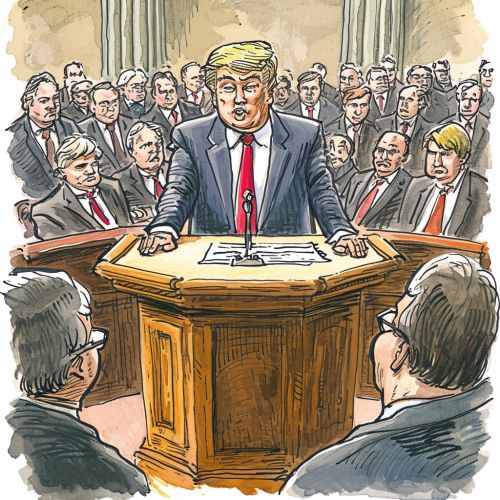Political satire
Overview
Political satire is a significant aspect of satire that specializes in gaining entertainment from politics; it has been used by many artists for centuries to express their opinions on the actions and decisions of politicians and to expose the contradictions in society. This form of satire is often manifested in various forms of media including literature, plays, commentary, and media such as lyrics, stage plays, books, and cartoons. Literature, plays, and cartoons have a long history of being used as forms of political commentary.

History
The history of political satire dates back to the times of Ancient Greece. Aristophanes, a comic playwright of ancient Athens, is known as the earliest satirist who wrote in the genre of Old Comedy. His works, such as The Clouds, The Wasps, and The Frogs, are all examples of political satire, providing commentary on the social and political happenings of Athens at the time.
In the Roman Empire, political satire was used as a weapon against the oppressive rule. Juvenal and Horace were the two most prominent Roman satirists who used their works to criticize the society and politics of Rome.
The tradition of political satire continued in the Middle Ages and the Renaissance period. In the 16th century, political satire became a significant part of the Reformation, with Martin Luther and John Calvin being notable for their use of satire.
In the 18th century, political cartoons became a popular medium of expressing political satire. Artists like James Gillray and Thomas Rowlandson were known for their satirical depictions of the politics of their time.
The 19th and 20th centuries saw the rise of political satire in literature and plays. Writers like George Orwell and Aldous Huxley used satire to critique the political systems of their times.
In the contemporary era, political satire has become a common part of popular culture, often used in television shows, films, and online media. Shows like The Daily Show and Saturday Night Live are known for their satirical takes on politics and politicians.
Forms of Political Satire
Political satire can take many forms, but its main aim is to provide commentary, critique, and humor relating to the political climate of the time, and the actions of politicians. Some of the most common forms of political satire include literature, plays, cartoons, and television shows.
Literature
Political satire in literature has a long history, with works dating back to Ancient Greece. In literature, political satire is often used to critique the politics of the time, and to provide social commentary. Notable examples of political satire in literature include George Orwell's 'Animal Farm', and Jonathan Swift's 'Gulliver's Travels'.
Plays
Political satire has also been a common theme in plays throughout history. From the plays of Aristophanes in Ancient Greece, to the works of contemporary playwrights, political satire has been used to critique and comment on the politics of the time. Notable examples of political satire in plays include Bertolt Brecht's 'The Resistible Rise of Arturo Ui', and Aristophanes' 'The Frogs'.
Cartoons
Political cartoons are a popular medium for political satire. They provide visual commentary on the politics of the time, often using humor and satire to critique politicians and political events. Notable examples of political cartoons include the works of James Gillray and Thomas Rowlandson.
Television Shows
In the contemporary era, political satire has become a common part of television shows. Shows like 'The Daily Show' and 'Saturday Night Live' are known for their satirical takes on politics and politicians. These shows use humor and satire to provide commentary on the politics of the time, and to critique the actions of politicians.
Impact of Political Satire
Political satire has a significant impact on society and politics. It provides a platform for critique and commentary on the politics of the time, and can influence public opinion. Political satire can also provide a means of resistance against oppressive political systems, and can be a form of protest.
Political satire can also have an educational impact, providing a means of informing the public about political events and issues. Through humor and satire, complex political issues can be made more accessible and understandable to the public.
However, political satire can also be controversial, and can lead to censorship and legal issues. In some countries, political satire is seen as a threat to the government, and can be subject to censorship and legal action.
